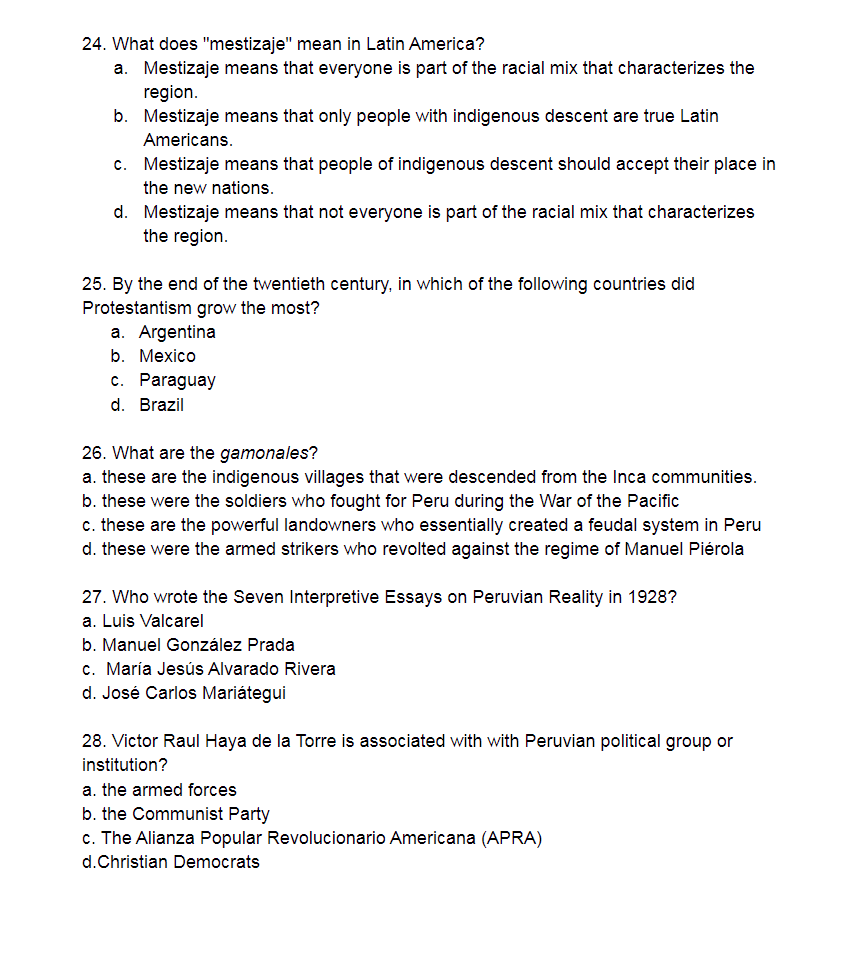

Thirdly, that Mariátegui’s unique perception of geographic differences was circumscribed to the social and economic differences of Peruvian reality (Sanjinés, 2009). Second of all, that Mariátegui elaborated a racist vision of Peru’s territory based on the critical dualism of coast/white and sierra/indigenous, which avoided other interregional racial differences (Méndez, 2016). First of all, that Mariátegui’s geographical influence comes from certain liberal intellectuals, reflected in a physicist and economist-oriented vision of geography, based on localization and industrial growth of the positive “regions” (Ruiz, 2011: 144). To date, the scarce research on theoretical relationships between Mariátegui and geography have only referred to three aspects of this problem. Closely examining these analytical positions reveals a powerful geographic and human sensitivity yet to be explored in Mariátegui’s thought, as well as the need to critically examine their argumentative origins.

In his seminal work, Siete ensayos de interpretación de la realidad peruana (Seven Interpretive Essays on Peruvian Reality, 1928), Mariátegui explains the antagonism and inequality between the coast and the sierra, he identifies the coexistence of three forms of economies (indigenous, colonial, and capitalist) that articulate different social geographies, and he outlines regional problems stemming from political alliances on different social levels, among other issues. Indeed, Mariátegui questioned the possibility of an absolute Latin American or Latin Americanist thought, all the while confronting the challenge of understanding the “reality” of his country, constructing innovative theses on Peruvian society and culture in which, evidently, geography was not exempt.

Against the Eurocentric approaches of his time, Mariátegui was one of the first intellectuals to express thought from and for Latin America, but without neglecting fundamental contributions of European and Western traditions (Urquijo y Bocco, 2016).

It critically interprets the epistemic origin of Mariátegui’s foremost geographical notions, recognizing the particular historical context and state of geography during the first decades of the twentieth century. This article aims to question such inertia and bridge the gap between Mariátegui and Latin American geographical thought. Scholars have consistently overlooked the problem of geographic relationships in the work of José Carlos Mariátegui (1894-1930).This silence can be summarized into two fundamental dynamics: Mariátegui’s scarce reference in the geographical field and the predominance of historiographic, sociological, and literary approaches to his work. Other Modernity, Other Geography: A Critical Interpretation of José Carlos Mariátegui’s Geographical Influences and Political Orientations.


 0 kommentar(er)
0 kommentar(er)
